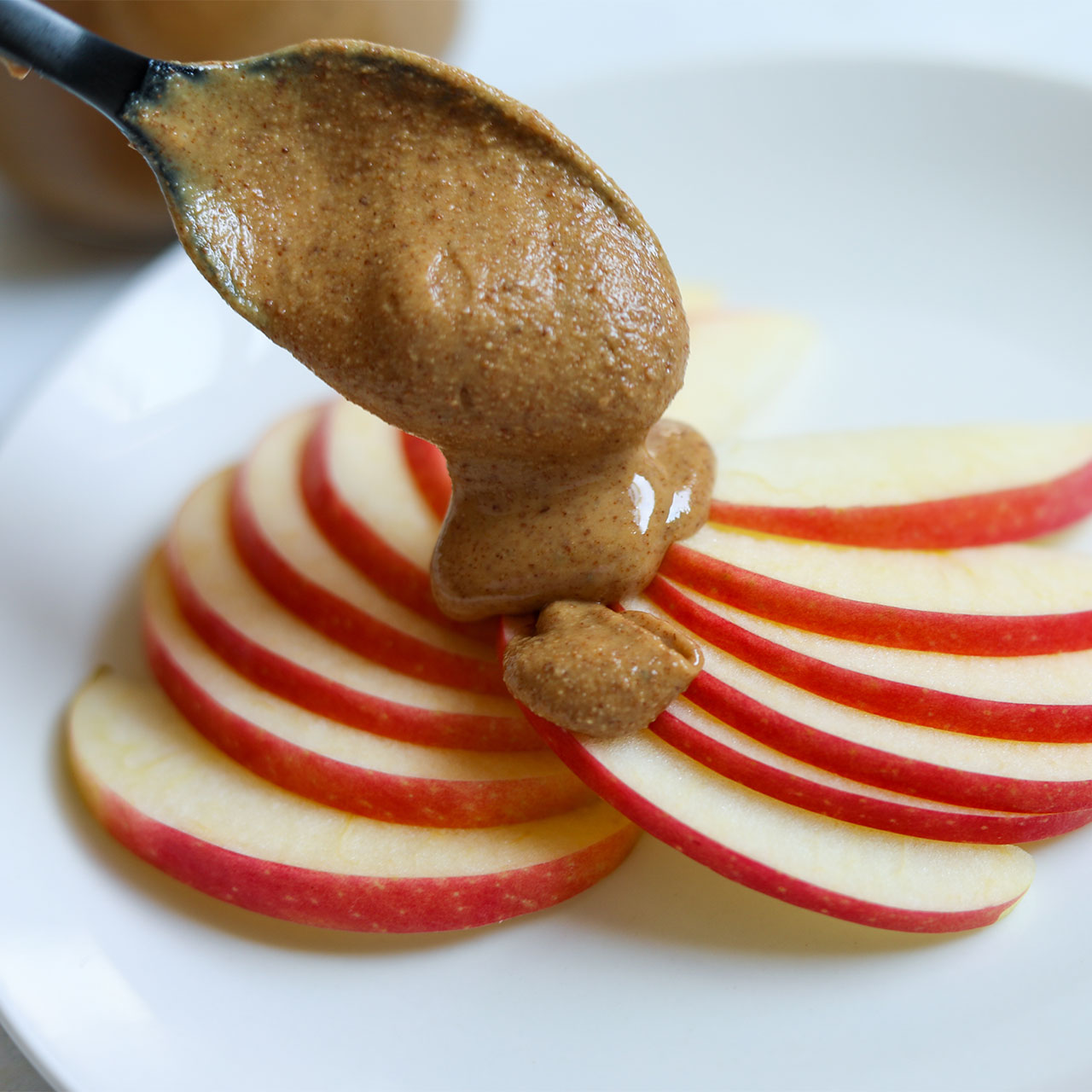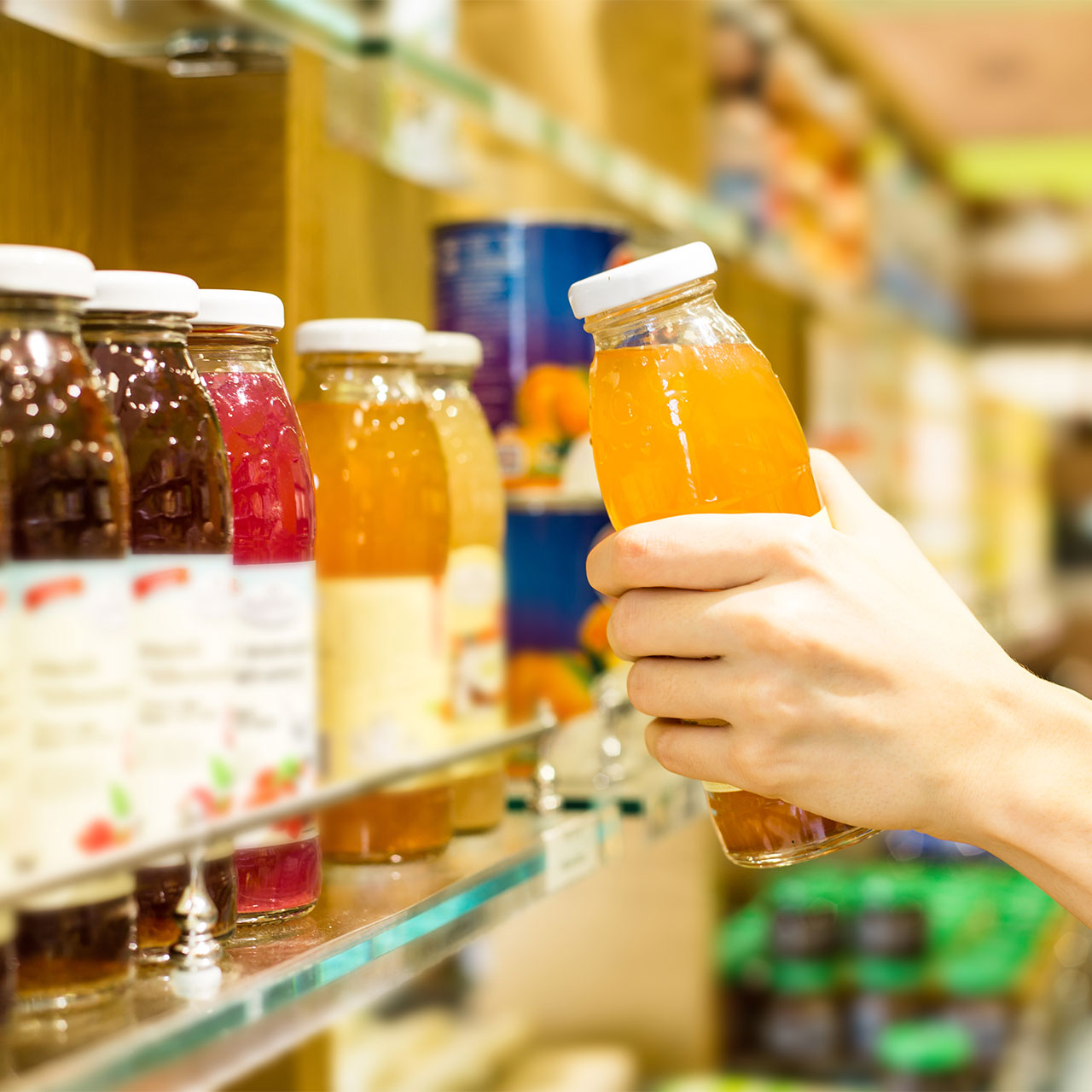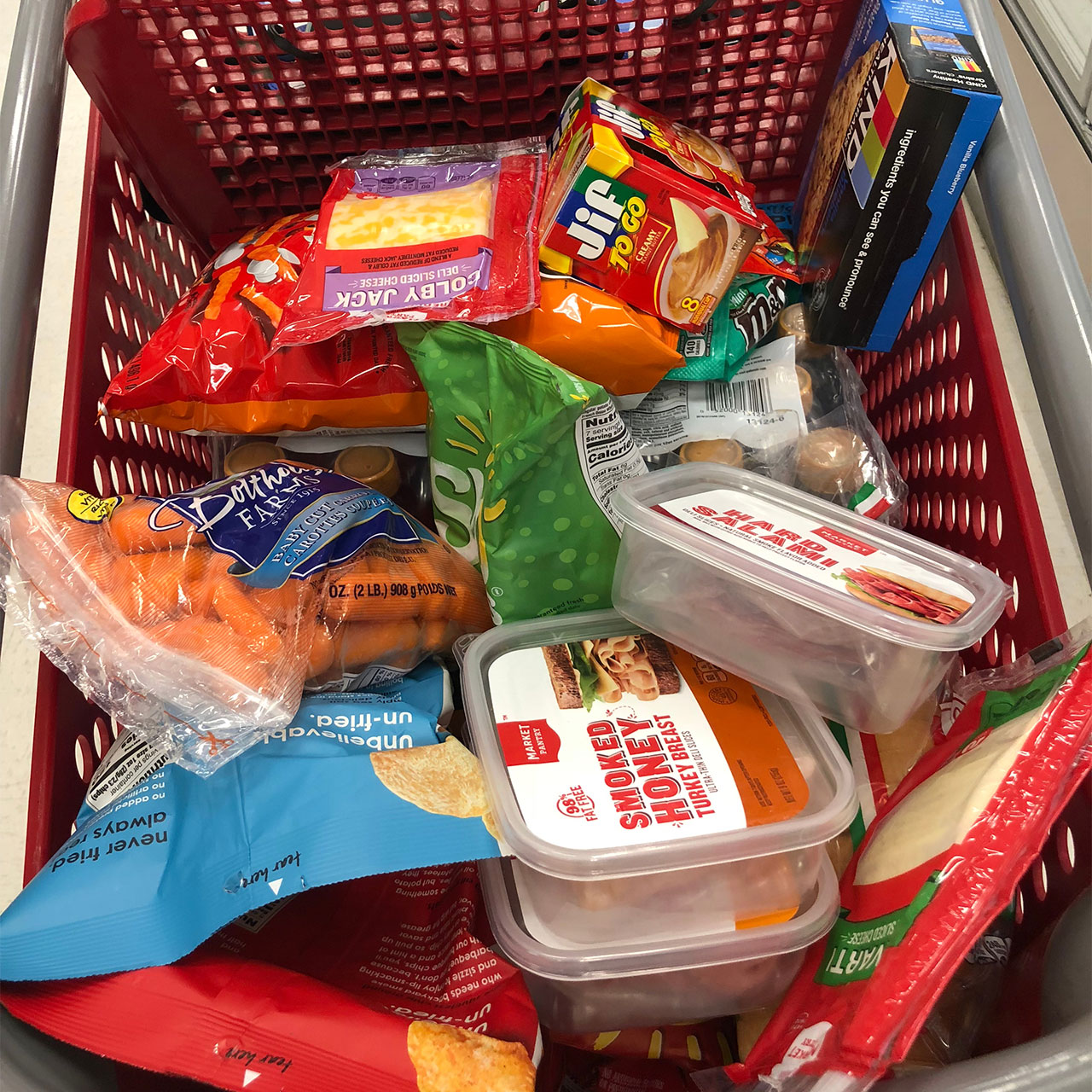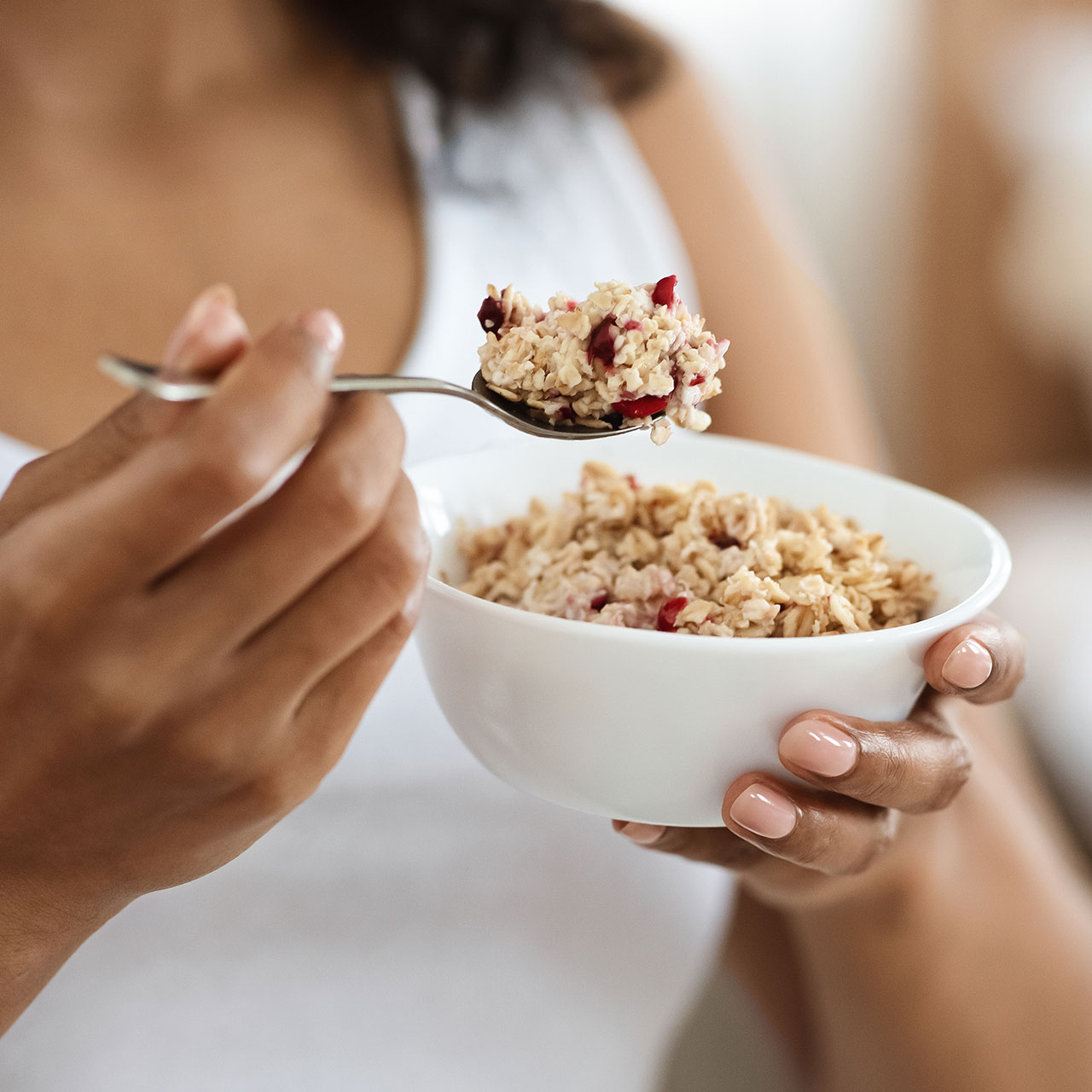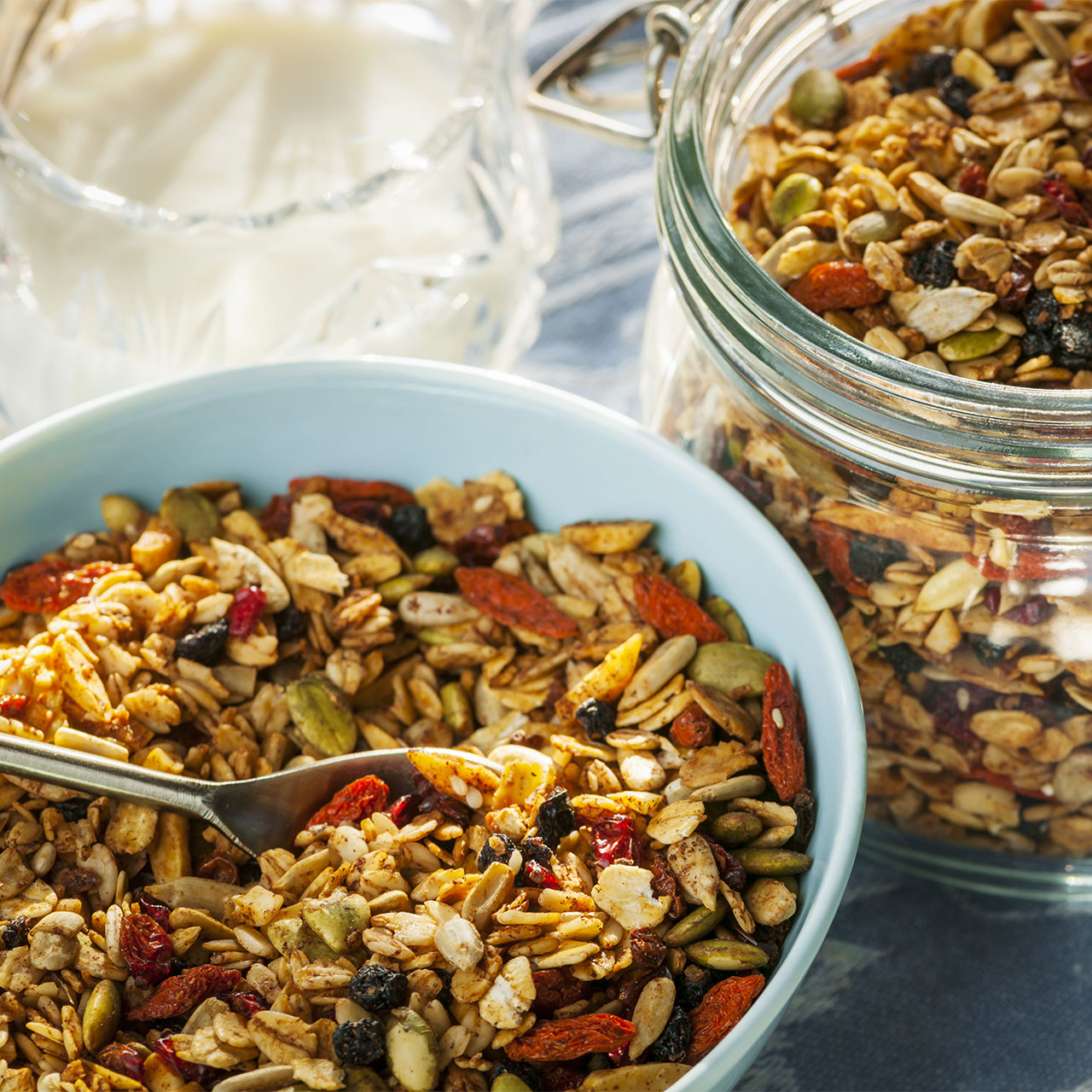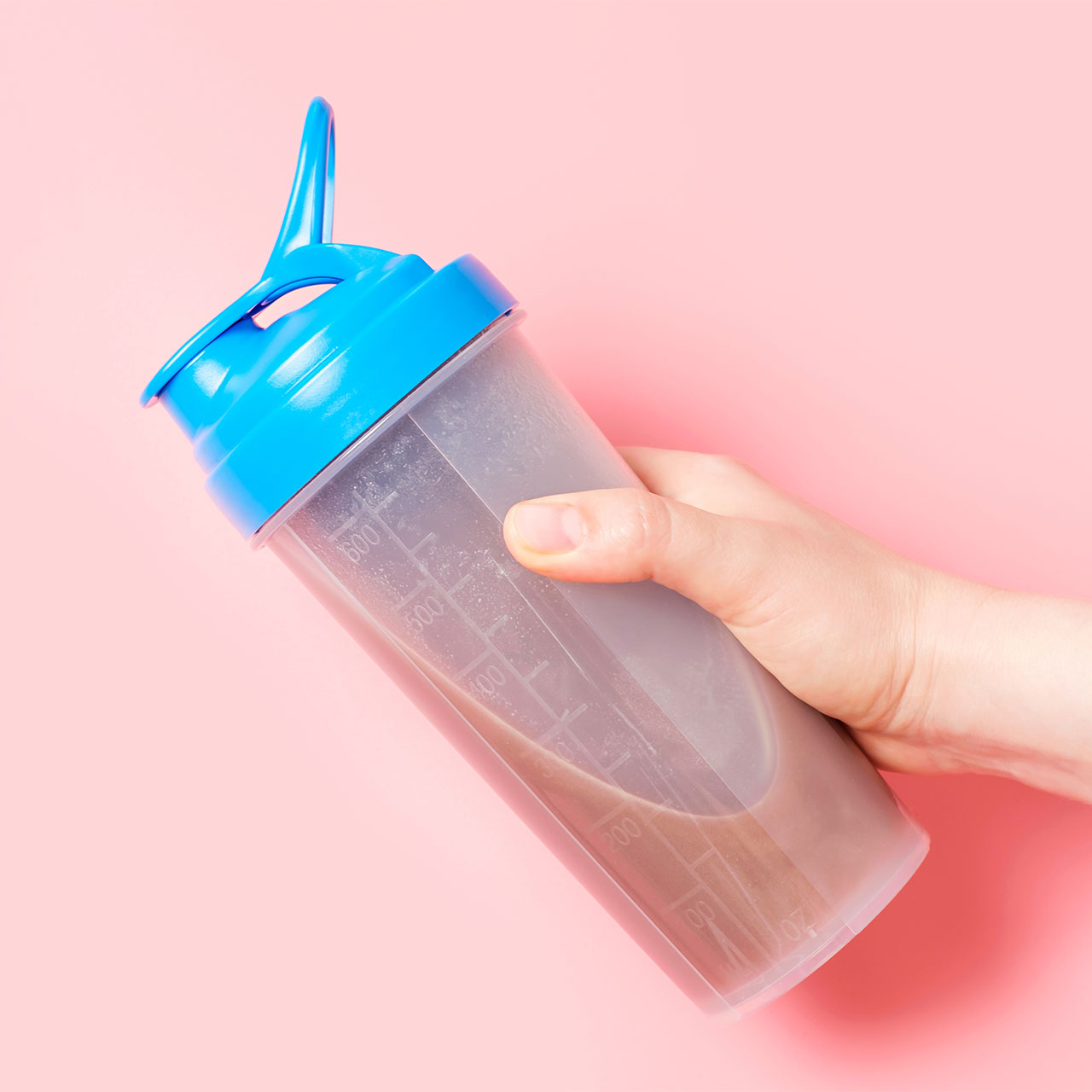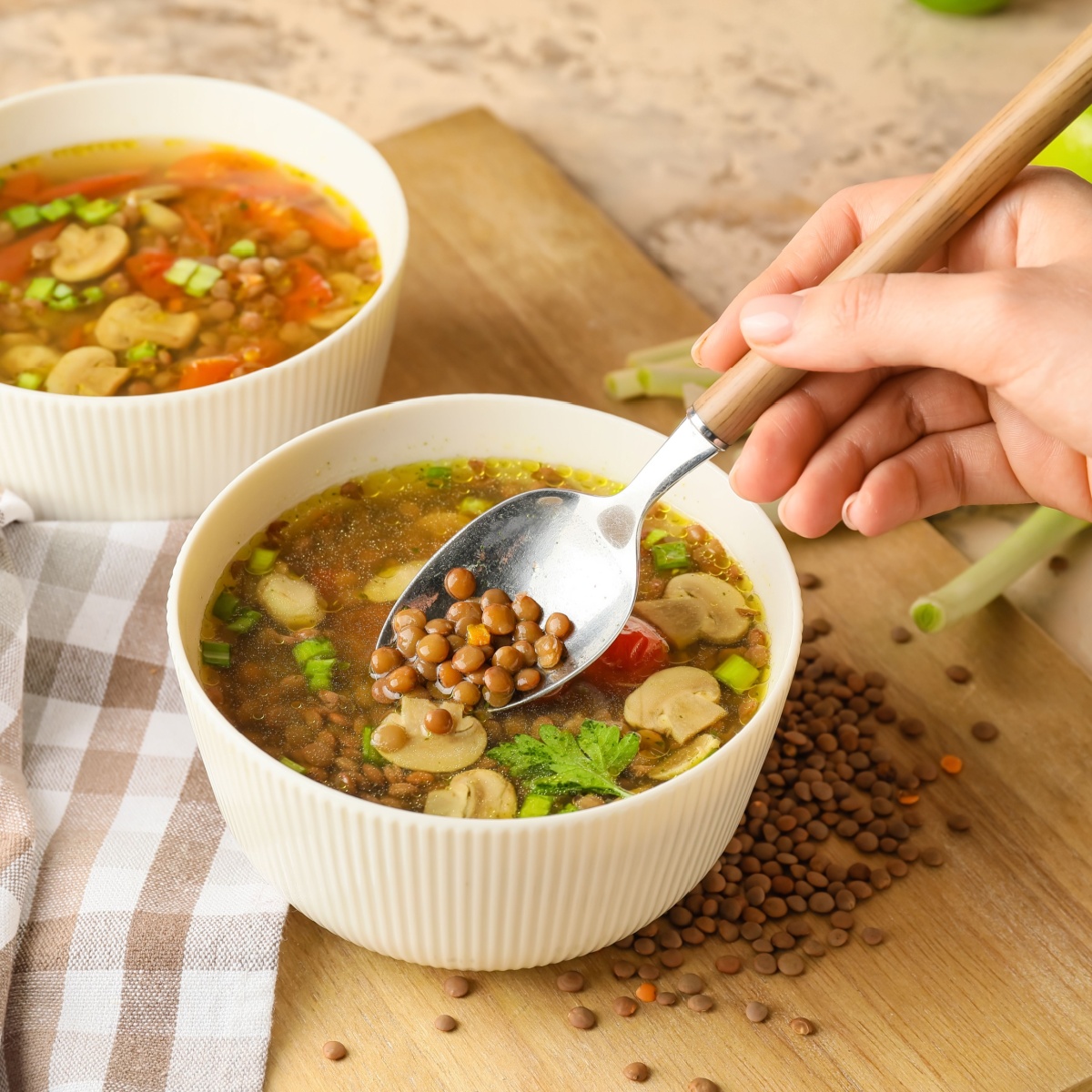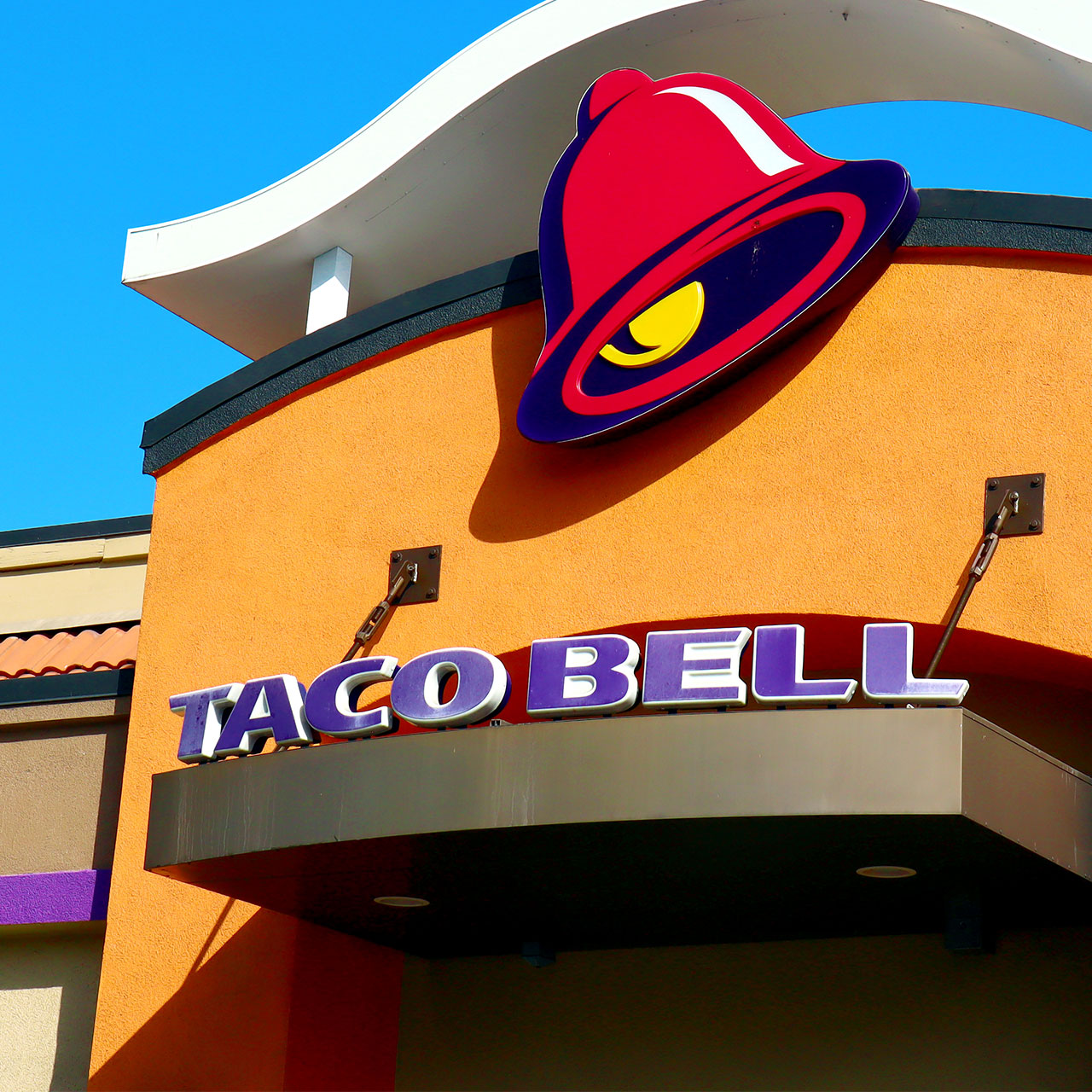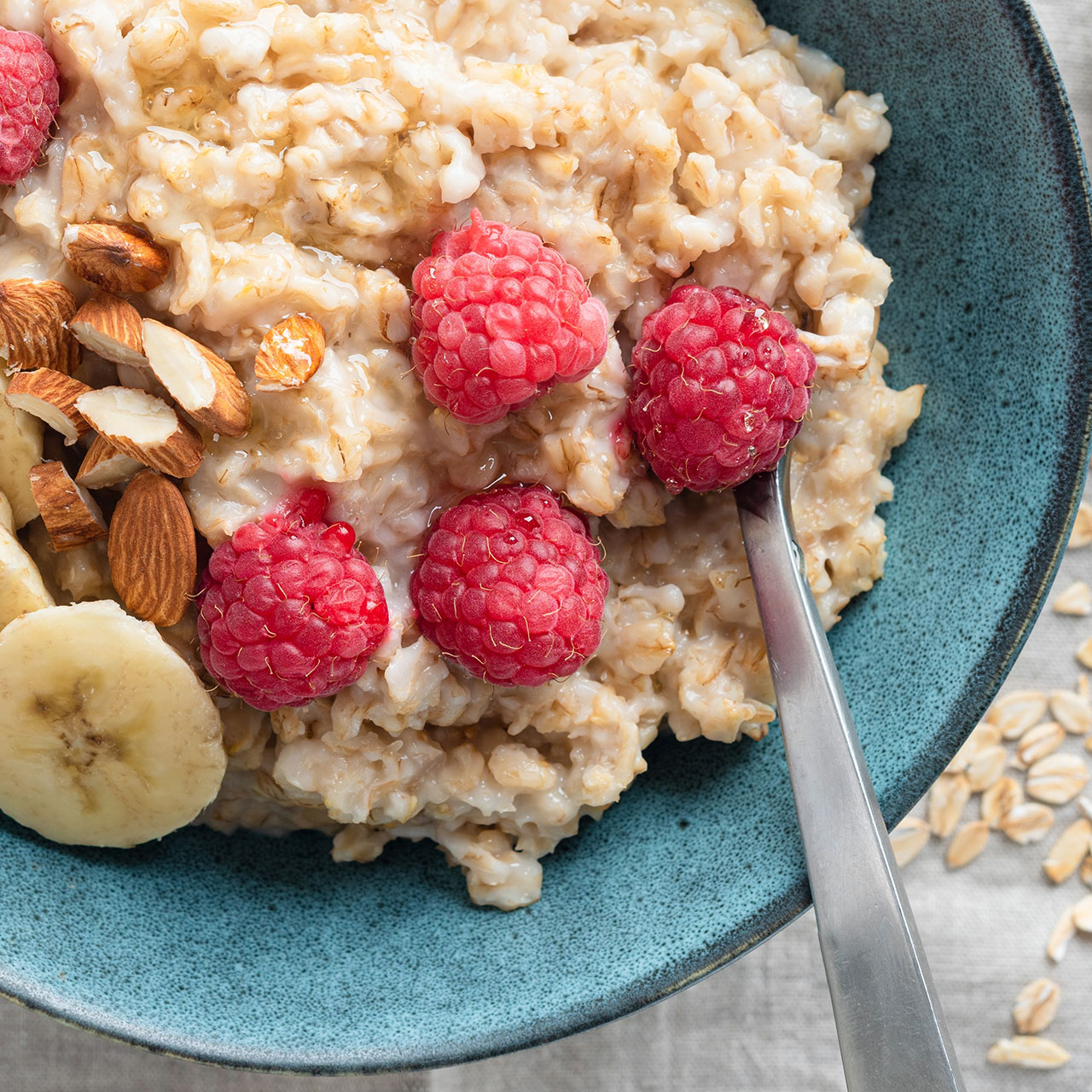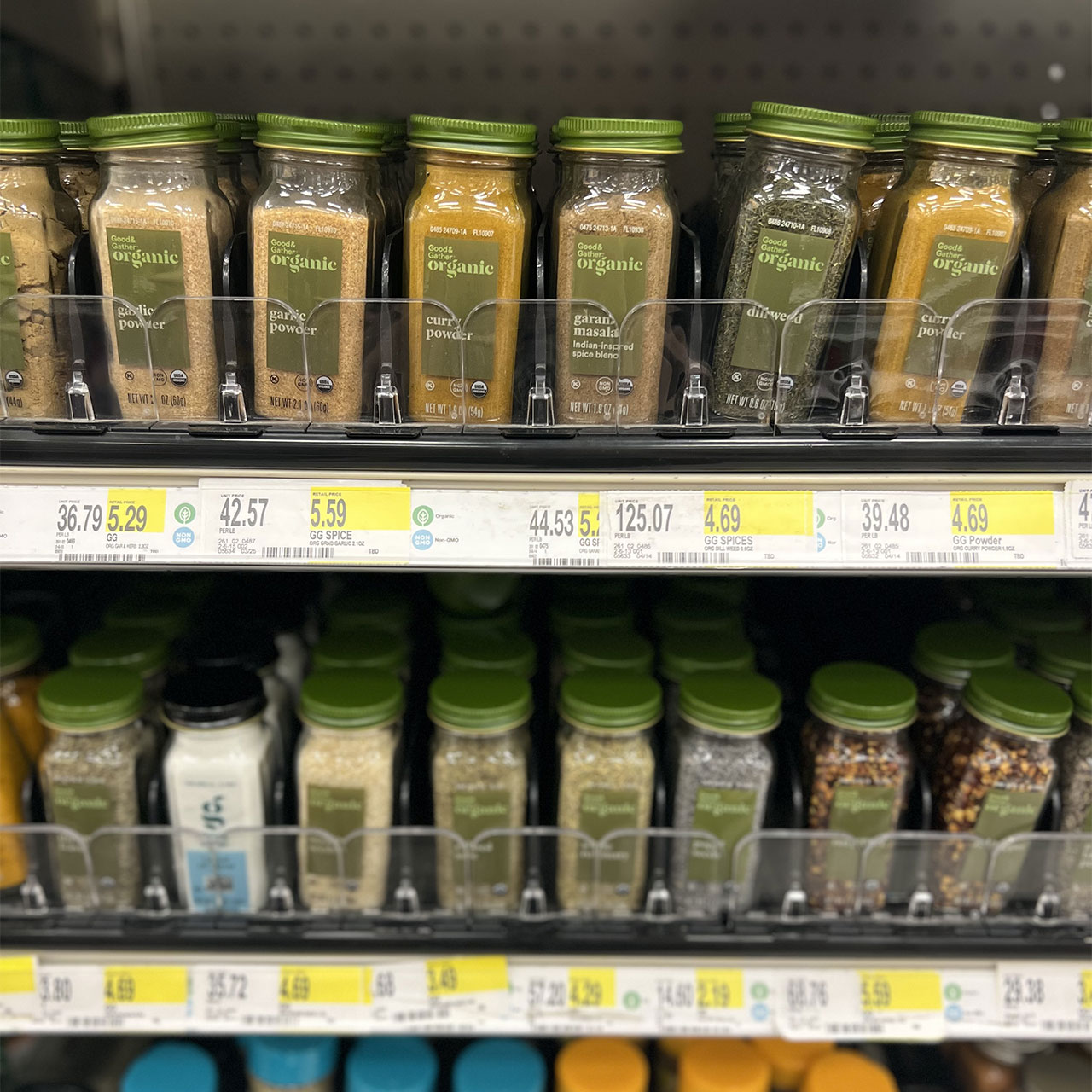Embarking on a trip to the grocery store is more than just filling a cart; it’s an opportunity to nourish your body and support your well-being. However, amidst the plethora of options, it’s essential to be mindful of the choices we make. Some items lining the aisles may seem harmless but can harbor ingredients that contribute to inflammation—a root cause of many health issues.
We spoke with Dr. Kezia Joy, MD, Kimberly Booker, RD, Destini Moody, RD, Dr. Shara Cohen, Dr. Zeeshan Afzal, MD, Lisa Richards, nutritionist & creator of the Candida Diet, and Jesse Feder, RDN, CPT, to learn about six inflammatory items to avoid buying at the grocery store. They revealed that processed meats, potato chips, soda, and more are some of the things to leave out of your cart. Read on to discover all six, plus healthier alternatives to buy instead.


1. Processed Meats
Processed meats, such as bacon, hot dogs, sausages, and deli meats, have been associated with adverse health effects, particularly in relation to inflammation and weight gain. These meat products are often high in saturated fats, sodium, and additives like preservatives and nitrates, which can contribute to chronic inflammation within the body.
"Sausages, bacon, hot dogs, and deli meats that have been cured, smoked, or salted often contain high levels of saturated fats, as well as additives such as nitrates and nitrites, which can contribute to inflammation. Processed meats are also high in calories and salt, which can lead to weight gain and increased blood pressure," Joy says. She also adds that these types of meats are "high in saturated fats which can lead to obesity and systemic inflammation."
Opt for whole, minimally processed alternatives like skinless poultry, fatty fish, plant-based proteins such as tofu and beans, and nuts and seeds like almonds and chia seeds. Eggs, particularly pasture-raised or omega-3 enriched, are also a nutritious choice. By choosing these options, you reduce processed meat intake, mitigate inflammation, and promote overall health.
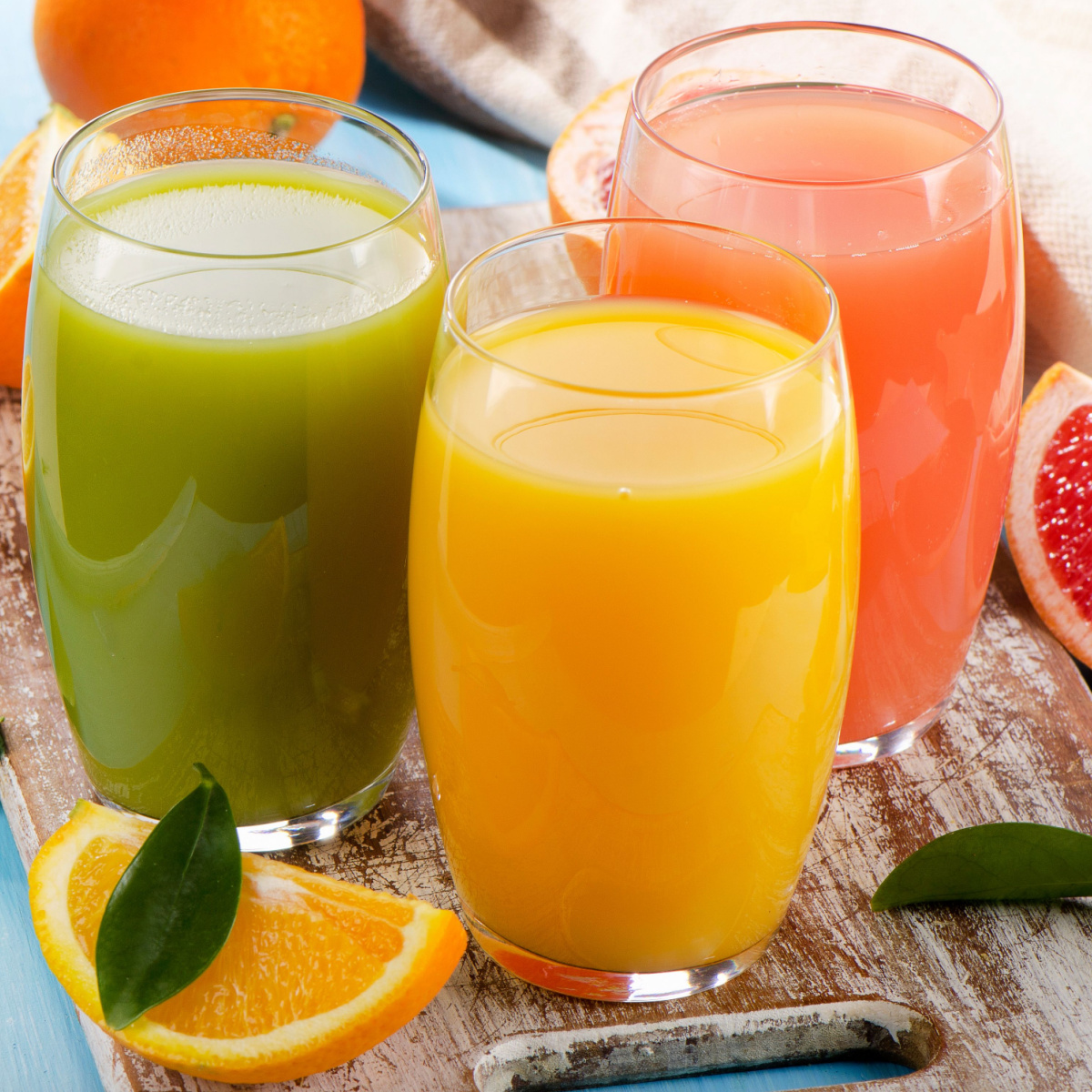
2. Fruit Juice
Fruit juice, often perceived as a healthful beverage, can paradoxically contribute to inflammation and weight gain due to its concentrated sugar content. While natural fruit sugars are accompanied by beneficial nutrients when consumed in whole fruits, the juicing process extracts the liquid, leaving behind concentrated sugars without the fiber and other compounds that help mitigate their impact.
"Commercial fruit juices often have added sugars and lack the fiber present in whole fruits. Consuming fruit juice without the fiber can lead to a rapid increase in blood sugar levels, promoting inflammation. The body doesn't register liquid calories as well as solid ones, leading to overconsumption and potential weight gain. The absence of fiber in fruit juice can also impact satiety, making it easier to consume more calories from other sources," Booker says.
For alternatives to fruit juice that won't cause inflammation, opt for whole fruits—they're packed with nutrients and fiber that regulate blood sugar and aid digestion, reducing inflammation risk. Infusing water with fresh fruit slices or herbs offers a flavorful, sugar-free option, while herbal teas and vegetable-packed smoothies provide hydrating, anti-inflammatory alternatives.

3. Soda
Soda, a popular and widely-consumed beverage, poses a dual threat to health by fostering inflammation and contributing to weight gain. Packed with added sugars, sodas can lead to a rapid surge in blood sugar levels when consumed in excess. Furthermore, the liquid calories provided by sodas can easily lead to an increased overall caloric intake, potentially contributing to weight gain over time. Moody lists several reasons why this sugar-laden drink needs to be cut out of your diet, especially when it comes to inflammation and weight gain.
"Depending on the brand, a standard 12-ounce can of soda can have 120 - 180 calories. While this isn’t a huge number, it’s important to note that there are zero nutrients to be found in soft drinks. Soft drinks are typically made from high fructose corn syrup with some artificial colors and flavors added and then infused with carbonated water to give those signature bubbles," she notes.
Moody further warns that soda is "essentially liquid sugar. However, corn syrup is just another form of sugar, and consuming a volume this large too often can cause inflammation in the body that can make it more difficult to lose weight and put you at risk for chronic diseases."
Consider sparkling water with a splash of natural flavoring such as lemon or lime juice. These options provide the fizziness and refreshing taste without the added sugars or artificial sweeteners found in soda. Herbal teas and infused water with fresh fruits or herbs are also excellent choices, offering hydration and flavor without inflammatory additives. Additionally, kombucha, a fermented tea beverage, can be a satisfying alternative thanks to its probiotic content, which supports gut health and reduces inflammation.
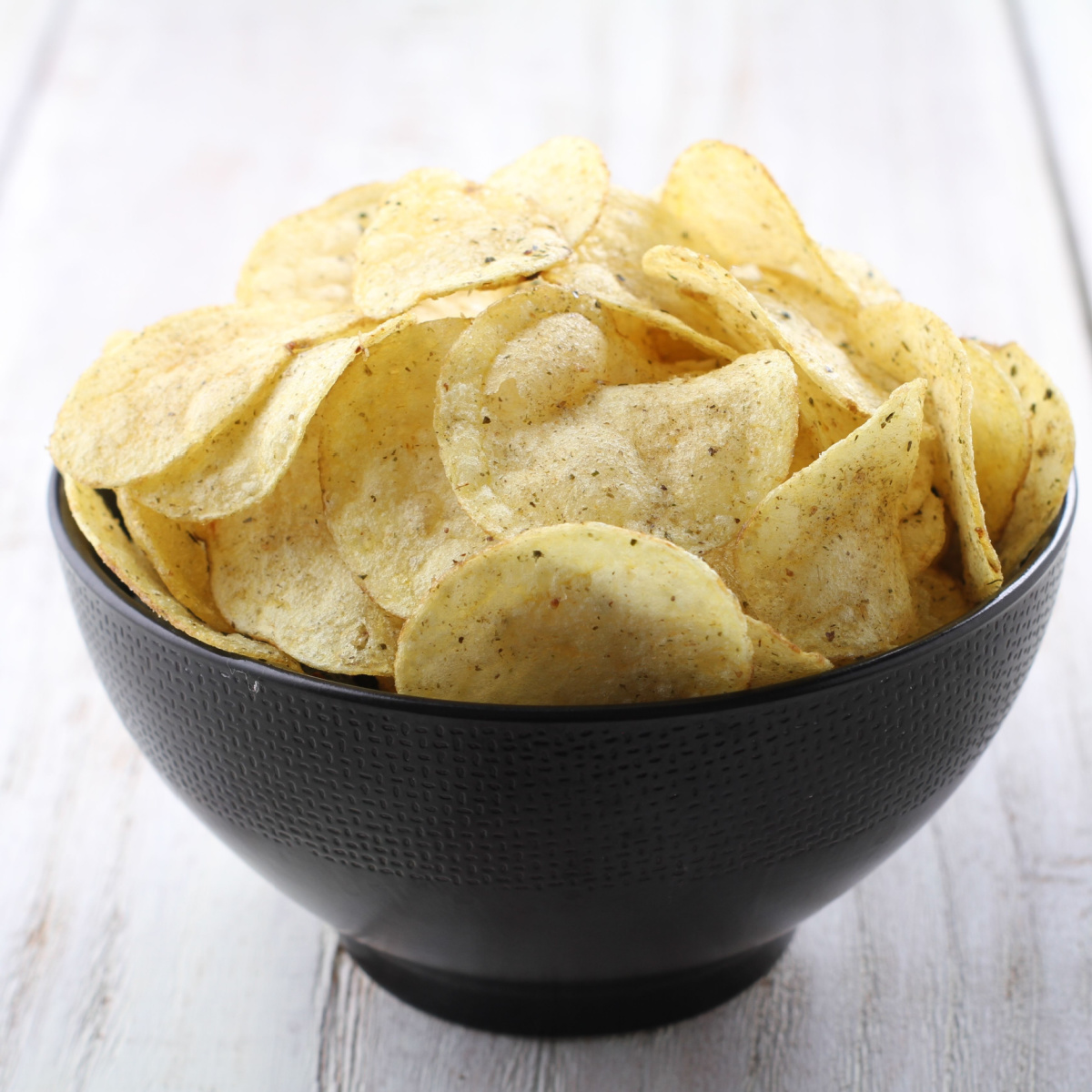
4. Potato Chips
Potato chips, a popular and readily available snack, have a direct link to inflammation and weight gain. These thin slices of potatoes, often deep-fried and salted, are not only high in unhealthy fats and calories but also lack essential nutrients.
Dr. Cohen recommends "avoiding potato chips, a common pantry snack that is high in trans fats, if you want to lose belly fat. These crunchy treats are notorious for their high calorie and low nutrient content, which can lead to overall weight gain and belly fat."
"Processed snacks like potato chips can slow down metabolism because they are high in calories, unhealthy fats, and sodium," Afzal explains. "These snacks can cause inflammation because the high levels of unhealthy fats and sodium can contribute to chronic inflammation in the body."
Dr. Cohen suggests that we minimize inflammation "and encourage weight loss by substituting these with healthier snacks like air-popped popcorn, roasted chickpeas, or vegetable sticks."

5. Pastry Cakes
Indulging in pastry cakes may bring momentary pleasure, but the toll they take on inflammation and blood sugar levels should not be overlooked. Loaded with refined sugars, unhealthy fats, and processed flour, these treats can contribute to issues such as weight gain and provoke inflammatory responses within the body.
"Pastry cakes are inflammatory and detrimental to gut health due to their high sugar and refined flour content," Richards warns. "These ingredients contribute to rapid spikes in blood sugar, prompting the release of insulin and potentially causing chronic inflammation." The excessive consumption of sugar can pose significant health risks, even contributing to the buildup of abdominal fat.
Try homemade treats made with whole grain flours, natural sweeteners like honey or maple syrup, and healthy fats such as avocado or coconut oil. Incorporating fruits like bananas or applesauce adds natural sweetness and moisture without refined sugars. Opting for gluten-free or grain-free options can also reduce inflammation for sensitive individuals.
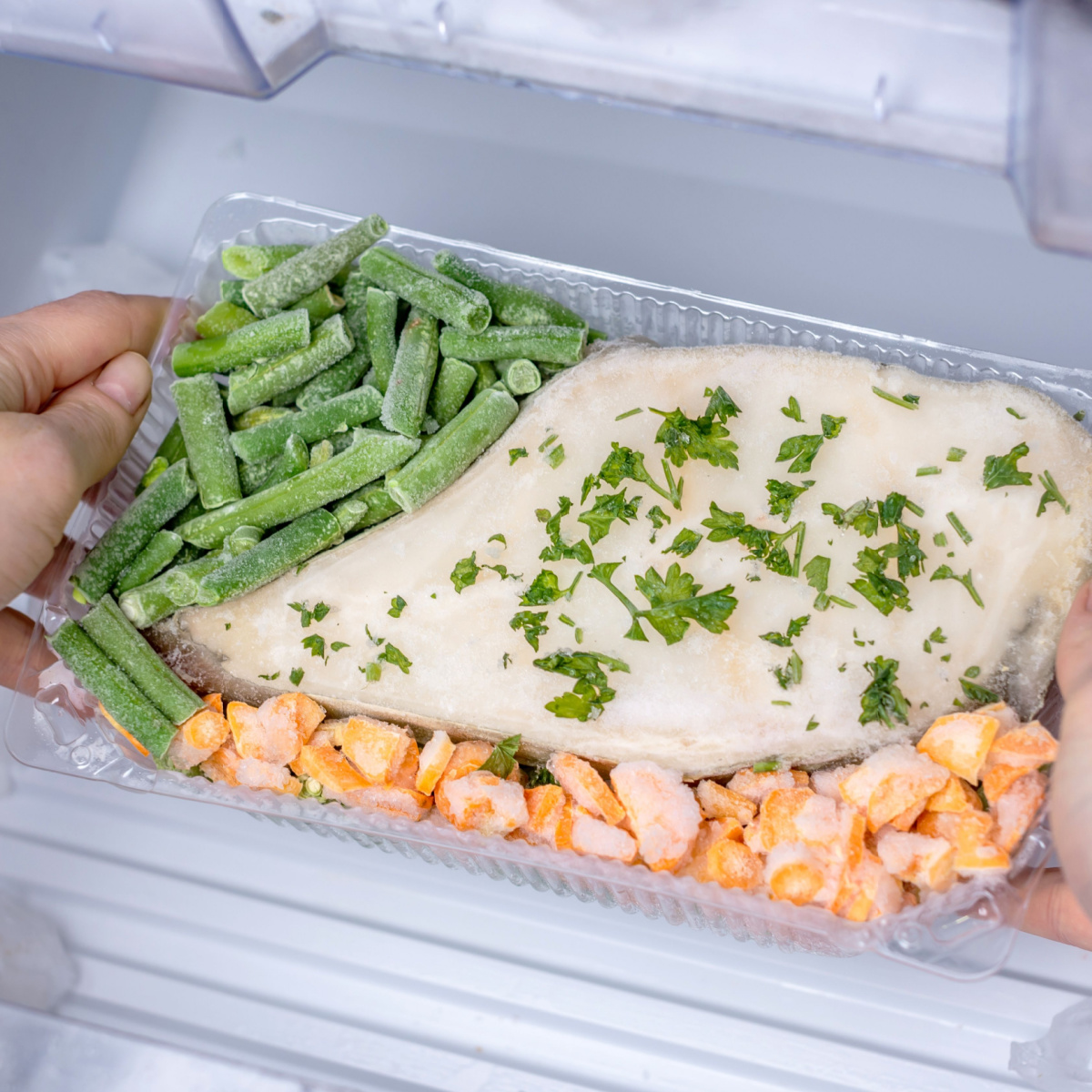
6. Low Fat Frozen Dinners
Low-fat frozen dinners are often marketed as a healthier option for those seeking convenient and portion-controlled meals. However, the impact on inflammation and waistline size should be considered. While these dinners may be lower in fat, they can still contain significant amounts of processed carbohydrates, sodium, and artificial additives.
Feder elaborates and says that "low fat frozen dinners are marketed as healthy dinners however they still contribute high amounts of sodium, preservatives, and are usually not satiating enough to only have one. This can lead to overeating, increases in weight, and inflammation throughout the body."
Consider homemade meals prepared with lean proteins such as grilled chicken or fish, plenty of vegetables, and whole grains like quinoa or brown rice. These options offer a balanced mix of nutrients, fiber, and antioxidants without the added sugars, sodium, and preservatives often found in frozen dinners. Batch cooking and freezing homemade meals in portion sizes can provide convenience without sacrificing nutrition, allowing you to control the ingredients and avoid inflammatory additives.


